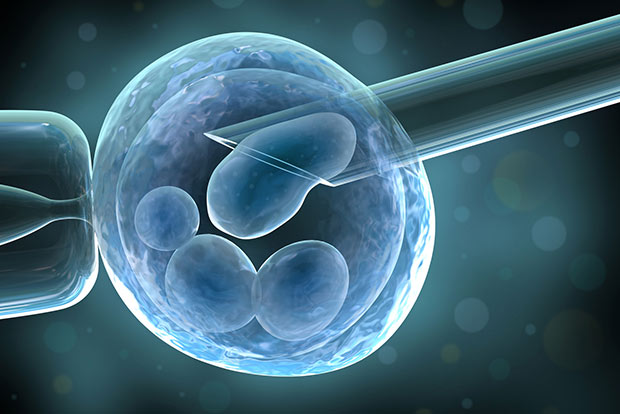Is it ethical to choose late parenthood?
IVF is a boon to many infertile couples, but the recent instance of a couple in their 70s becoming first-time parents has set experts thinking on issues that have not been spelt out unequivocally

Chennai
A man and his wife, both in their 70s, who recently became first-time parents through in-vitro fertilisation (IVF) have turned the spotlight on the many ethical issues that constitute a grey area in this line of treatment. Citybased doctors say that the case has not only flouted guidelines set by the Indian Council of Medical Research (ICMR) and Indian Society for Assisted Reproduction (ISAR), but could also lead to unrealistic expectations among others undergoing IVF.
Earlier this month, 72-year-old Daljinder Kaur and husband Mohinder Singh Gill (79), had a baby boy through IVF. The couple from Punjab had undergone treatment at a clinic in Hissar, with Daljinder conceiving in the third cycle. They are not the first couple to have a biological child in their 70s. A few years ago, a 70-yearold woman from Hissar, had delivered a girl through the same procedure.
Risky deal: City-based doctors say that the case sets a wrong precedent for practitioners and couples seeking IVF treatment. Dr Priya Selvaraj, infertologist, GG Hospitals, says that there are guidelines implemented in the current proposal of the ICMR and ISAR where the age of the mother should not exceed 50 and the father’s, 55. “Several ethical, moral, financial and legal aspects must govern the clinics and couples deciding on par enthood at an older age. Long before rules were set, we implemented the upper age limit in our practice,” she adds.
Late pregnancies come with their own set of complications and at 70 plus, the mother is definitely at high risk. Dr Sanjeeva Reddy, Head of Department, Reproductive Medicine, Ramachandra Medical Centre, says that little is known about the background of the couple’s IVF cycle. “When age advances, the mother is likely to suffer from hypertension or diabetes. If something had gone wrong during pregnancy or labour, the mother could have died.”
Success rates in assisted reproduction vary due to many factors, such as age, medical disorders, failure to conceive on earlier occasions and specific female or male factors contributing to their sub fertility, says Dr Priya. “On an average, with the current technology, one can expect anywhere from 45-58 per cent success, and using embryo biopsy and other selective methods, this can climb to almost 65 or 70 per cent. But one cannot guarantee everyone undergoing IVF a 100 per cent success in the first attempt. For an older couple, especially the woman, success rates are comparatively and significantly less because of ageing egg quality and poor uterine lining. Although techniques exist to improve this, their success still remains subpar to normal couples,” she says.
Dr. Aruna Ashok, fertility consultant at Nova IVI Fertility, says that ever since the news of the couple began making the rounds, she has had several people in their 50s approaching her for treatment. “We, as a matter of policy, don’t encourage IVF for couples above 50 , but after the recent news, many have asked if at 72, the woman could have a child by IVF, why couldn’t they give it a try at 51 or 52? The new Assisted Reproductive Technology Bill, which is pending in Parliament, can help in avoiding such cases,” she adds.
This is a classic case to highlight the unethical practices followed in some clinics, points out Dr Priya. “This is an example of what not to offer in the face of societal, cultural or personal pressure. In fact, an open letter was addressed jointly by the Indian Society of Assisted Reproduction to all doctors, urging them to use technology for the right or justified case scenarios,” she says.
Child’s well being: Even for adoption in India, the guidelines specify that the sum total age of the couple shouldn’t be above 110 years, says Dr Sathya Balasubramanium, Clinical Director, Fertility at Cloudnine, Chennai. “This calls for stricter rules to monitor unscrupulous fertility clinics,“ he adds. Besides, with the mother at risk, what about the child’s well being, psychological and otherwise, he asks. At a later age, parents do not have the energy to nurture a child and ensure a joyful childhood, says Dr Thomas Jayaraj, Director, Centre for Child Rights and Development. “Parents should have sound physical and mental health to provide them quality time,” he stresses.
Visit news.dtnext.in to explore our interactive epaper!
Download the DT Next app for more exciting features!
Click here for iOS
Click here for Android



